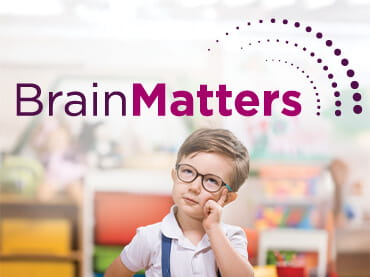- Find a Provider
- Locations
-
Services
- Specialties and Services
- See All Services
Specialties and ServicesBehavioral Health Care Coordination Check In Faster COVID-19 Vaccine Dermatology Driver’s Physical Express Care Flu Vaccine Services Fluoride VarnishLactation Consulting Newborn Care Nutrition Services Online Scheduling Patient Portals Primary Care Medical Home ImPACT® Testing ResearchSame-day Sick Appointments Sports Physicals Substance Use Education Teen Resources Transition to Adulthood Video Visits Walk-in Services Weight Management - Health Resources
-
About Us
- About UPMC CCP
- Patient Resources
About UPMC Children's Community Pediatrics
Why is My 8-Year-Old Acting Like a Teen—and My Teen Acting Like a Toddler?
If your 8-year-old is suddenly rolling their eyes like a seasoned teen or your 16-year-old is melting down over what’s for dinner, you're not alone. It’s not bad parenting—and your kid isn’t just being difficult. What you're seeing is brain growth in action.
What’s Really Going On?
Age 8: The Rise of the Mini-Teen
Your 8-year-old is starting to crave independence and approval—and they may act older than they are. Their thinking is still very concrete and often focused on fairness and self-image. They want to be seen as “grown up” but still need a lot of guidance.
Common behaviors:
- Testing limits or pushing back.
- Intense concern with what’s “fair”.
- Sensitivity to criticism—they’re often their own harshest critic.
- Increased desire for peer approval.
Teenage Years: Remodeling Underway
Your teen’s brain is undergoing a massive renovation—especially in the parts that handle emotions, judgment, and impulse control. That’s why even older teens can occasionally act like toddlers: emotional, impulsive, and reactive.
Common behaviors:
- Mood swings or overreactions.
- Risky or impulsive decisions.
- Craving independence but needing support.
- Pushing boundaries while secretly relying on structure.
How You Can Help—At Any Age
- Stay calm—even when they aren’t. Take a breath before reacting. When emotions run high, try asking, “Do you need help, a solution, or some space?” Then revisit the situation later to talk it through and build problem-solving skills together.
- Set boundaries (and stick to them). Even if they push back, kids feel safer with consistent rules and routines. Clear limits offer stability in a world that often feels unpredictable.
- Support brain-friendly habits. Sleep, nutrition, movement, and downtime aren’t just about physical health—they’re essential for brain development and emotional regulation.
- Pick your battles. Not every disagreement needs to become a showdown. It’s okay to let minor things slide sometimes—especially if the issue isn’t worth the energy.
- Get extra support when you need it. Your UPMC CCP care team is here for the whole family. Our providers can help parents better understand what’s happening inside their child’s growing mind—and why it matters for their health, behavior, emotions, and development.
Guidance for Growing Minds
At UPMC Children’s Community Pediatrics, we’re passionate about helping families understand the incredible journey of brain development. That’s why we created Brain Matters—a program offering expert guidance, parenting resources, and tools to support your child’s brain health from infancy through the teen years.
Explore Brain Matters today.





